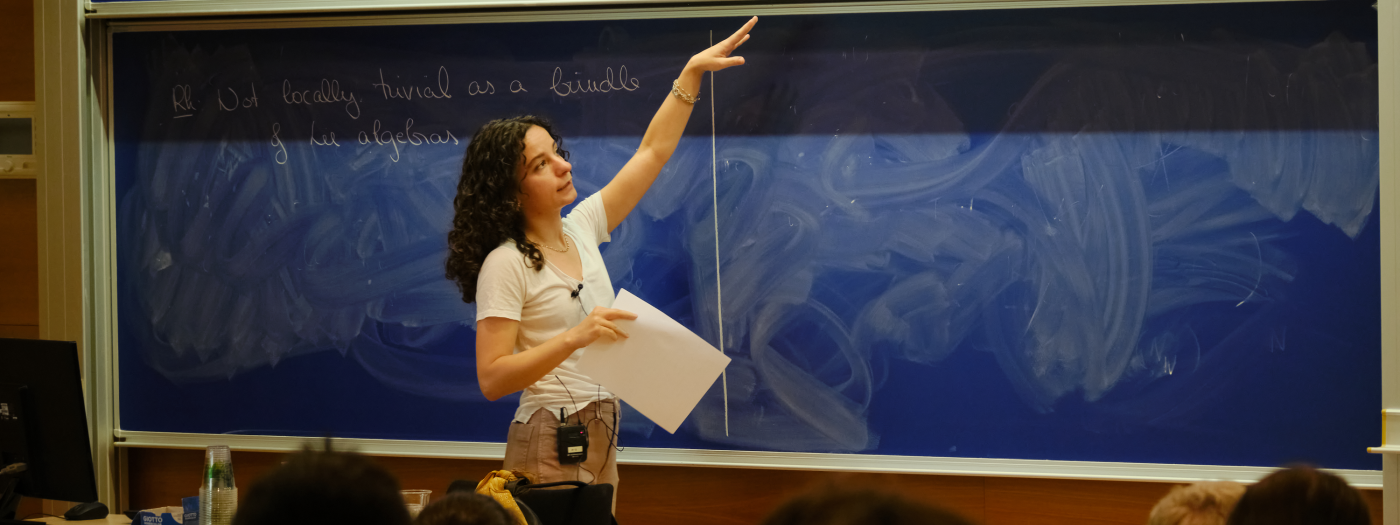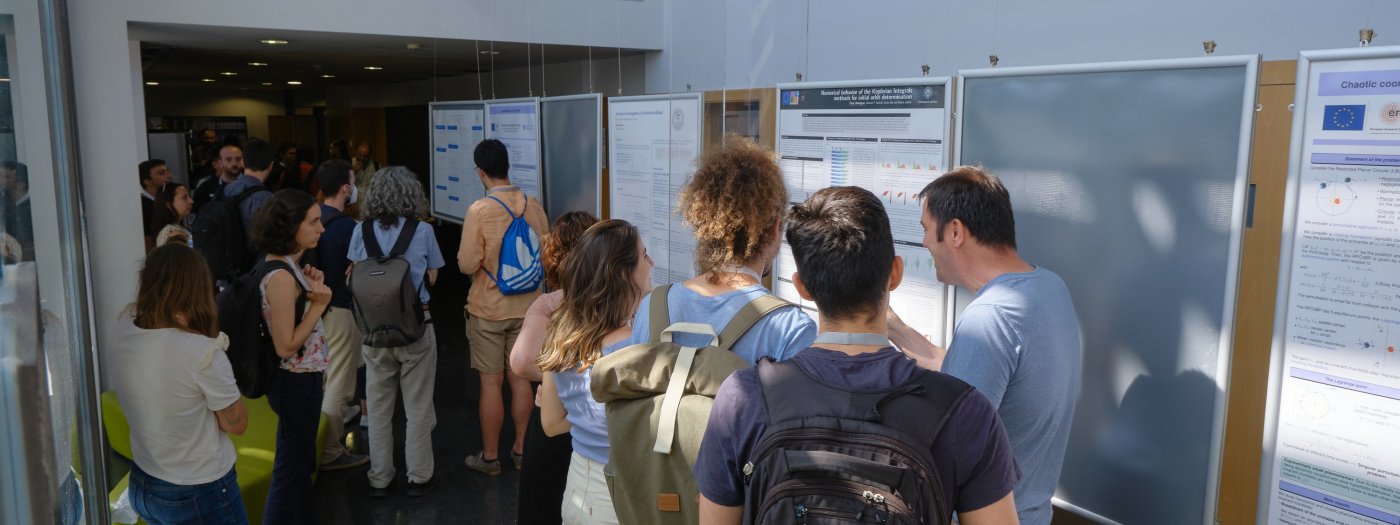Advanced Mathematics: Bridging the Gap between Fundamental Theory and Real-World Impact
At the Centre for Mathematical Research (CRM), we recognize mathematics as the universal language that underpins many aspects of our world. It is a tool to explore everything from the mysteries of biological systems to the complexities of climate hazards, all through the lens of mathematics. Research in mathematics is about seeing the unseen and understanding how theories on paper help us overcome the challenges of the world around us.
This project invites you to explore the world of mathematics, where you will engage in research that spans a broad spectrum of topics. In particular, we want to offer two pathways for this: one exploring more theoretical topics of mathematics and one more focused on practical implementations of mathematical tools. The objective is to cover as much as possible the interests of every student, while equipping you with the necessary tools to approach and address critical issues ranging from ecological conservation to mobility optimization. We aspire to foster the interest in mathematics not only as a scientific field but also as a potential career, by demonstrating the pivotal role it plays in driving innovation and providing solutions to pressing global problems.
By participating in this project, you will contribute to cutting-edge research that has the potential to make significant real-world impacts. Now, how are we going to do this? This project is going to be hands-on and collaborative to the core. At CRM, you will have the opportunity to tackle both abstract and complex principles, while also experiencing how our research team is transferring them to real-world related issues by getting to know real projects we are working on. Here at CRM, we approach mathematics from a variety of angles, from neuroscience to genetics and evolution; from industrial solutions to algebra, homotopy theory, geometry and Partial Differential Equations; from natural hazards to dynamical systems.
The road won't always be easy. You will learn to work with data, build models from scratch, and test your ideas until they can be implemented. Think group brainstorming, work groups where problems are puzzles waiting to be solved, and discussions that open new worlds of understanding. By the end of this project, students won't just know math; they'll understand its heartbeat.
We hope that, after their stay with us, students see the world of mathematics differently. Mathematicians are thinkers, problem-solvers, and creators. This project is more than a learning experience, it's a doorway into a world where math doesn't just solve problems – it impacts our daily lives.
Sounds interesting? Welcome to the place where mathematics meets real-world challenges – and transforms them.
This project would be particularly suitable for students with interests in the following areas:
- Mathematics: Those with a passion for mathematical theories and their applications.
- Physics: Students interested in the fundamental principles of the universe, where mathematical models often play a crucial role.
- Engineering: Aspiring engineers who will benefit from understanding mathematical models and their applications in designing and problem-solving.
- Environmental Sciences and Ecology: Individuals interested in understanding and modelling environmental systems and ecological interactions.
- Biology and Evolutionary Biology: Those interested in the mathematical modelling of biological systems and evolutionary patterns.
- Genetics and Biotechnology: Students keen on understanding genetic data analysis and the role of mathematics in biotechnological advancements.
- Neuroscience: Individuals curious about the quantitative analysis of neural networks and brain functioning.
This project would appeal to students who are not only passionate about their respective fields but also keen on understanding the underlying mathematical principles that drive research and innovation in these areas.
- Use of various computer applications for analysis, numerical and symbolic calculus, graphic representation, and optimization, to experiment with and solve complex mathematical problems.
- Develop the ability to analyze pertinent data in moderately complex real-life situations, propose and validate mathematical models using appropriate tools, and draw conclusive insights from the results.
- Identify and appreciate the role of mathematics across various disciplines, understanding its integral presence and application in diverse fields.
Laptop.









